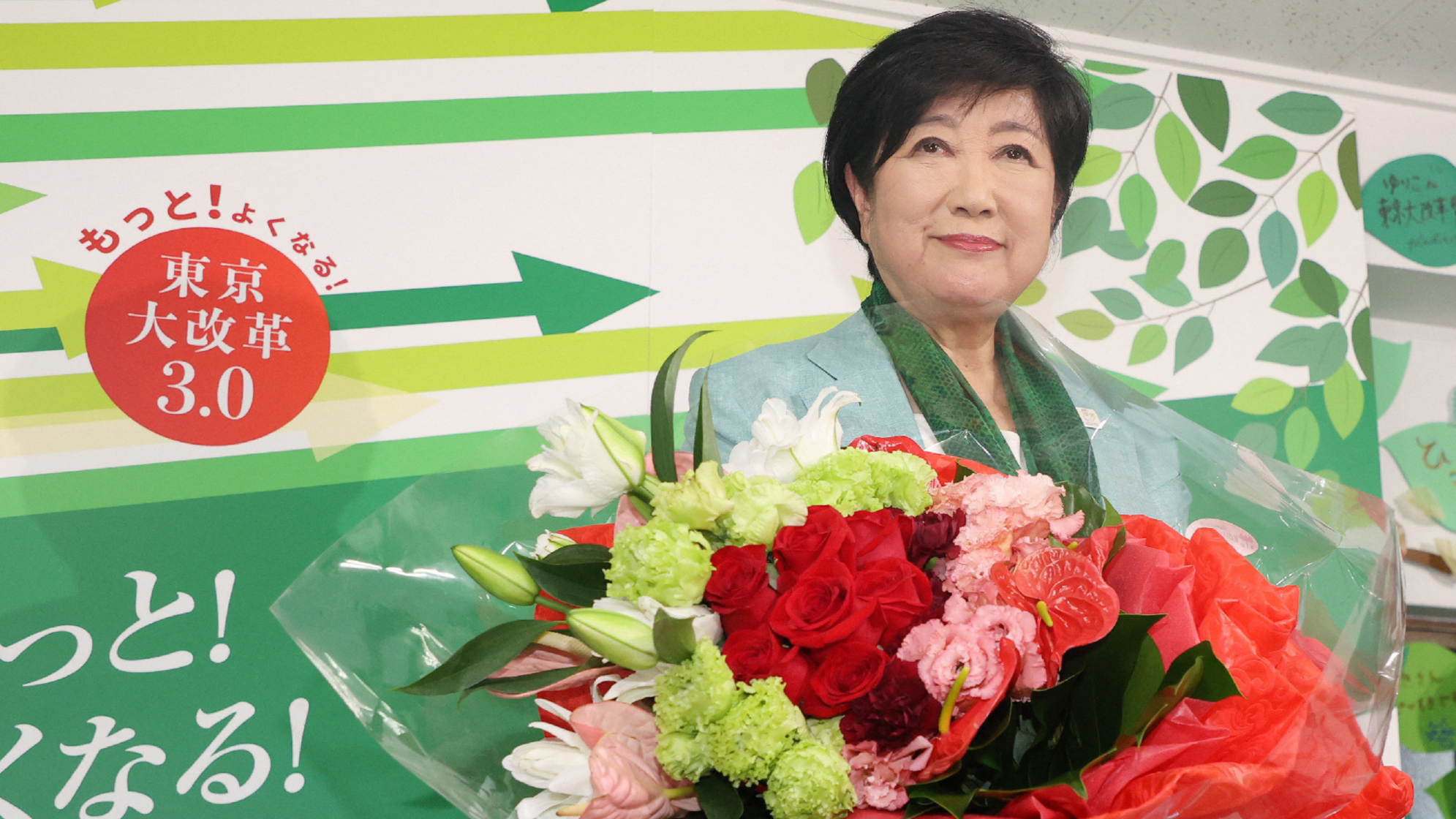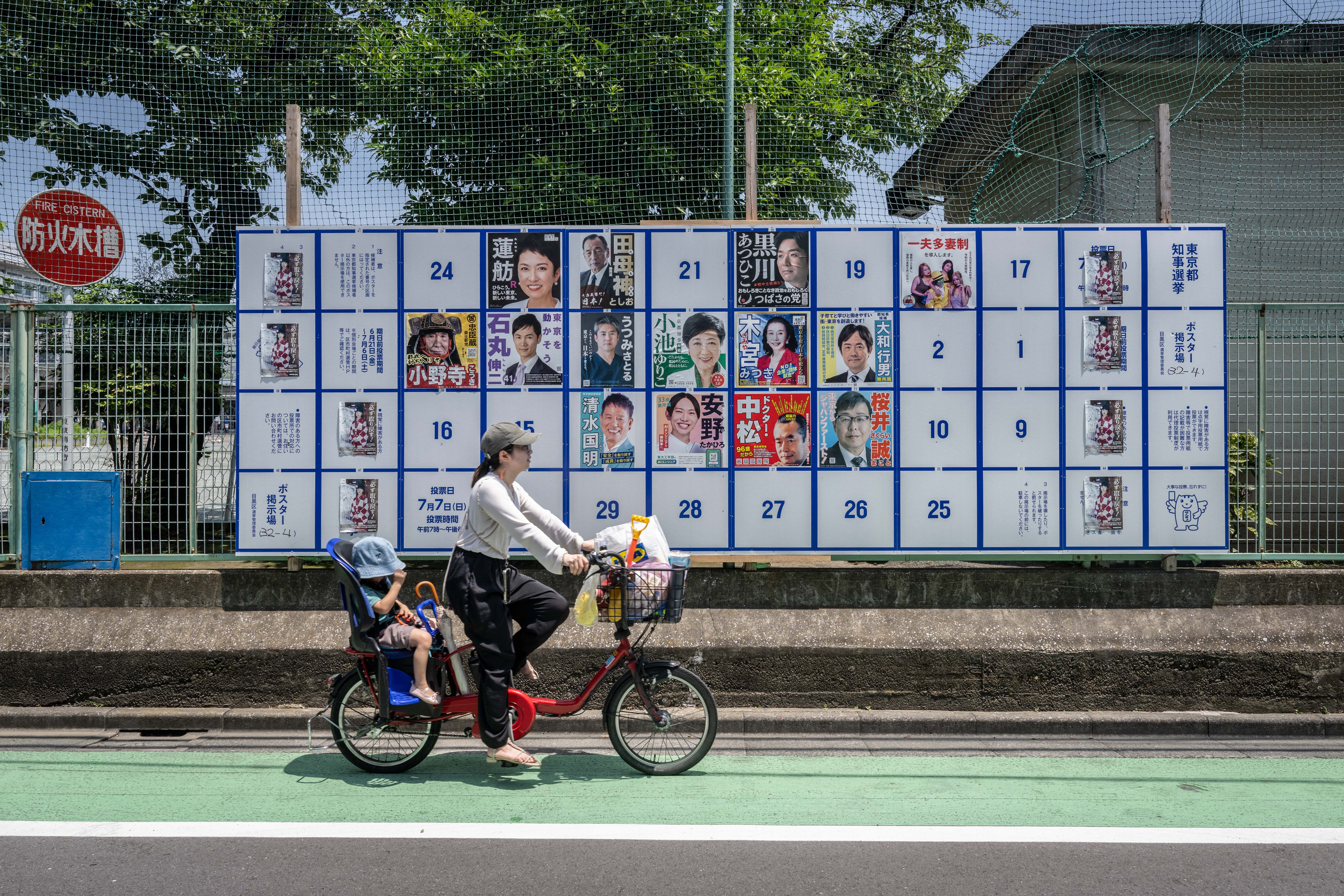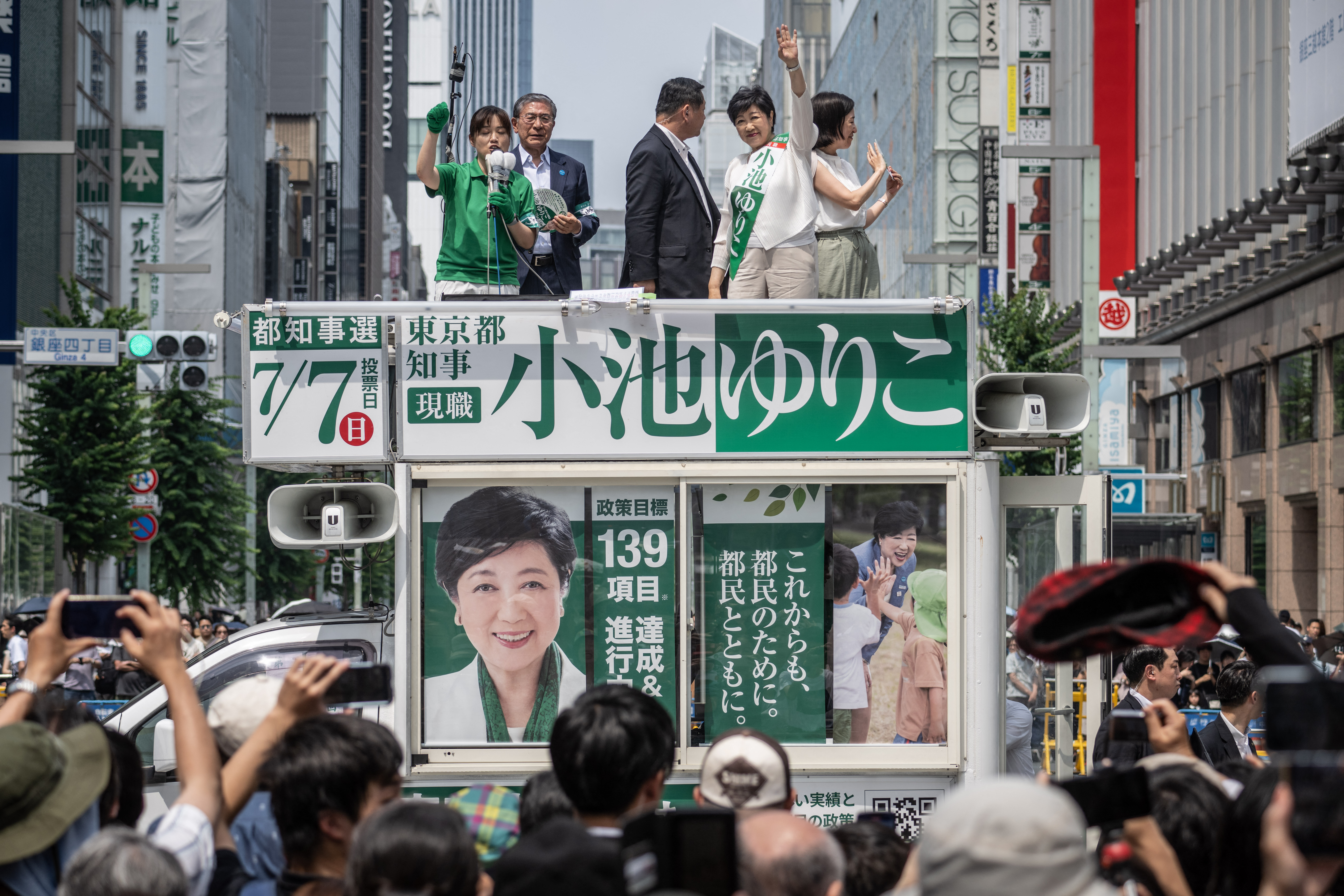
The reelection of Yuriko Koike to a third term as Tokyo governor on Sunday temporarily eased the growing criticism against Japanese Prime Minister Fumio Kishida’s cabinet and his ruling Liberal Democratic Party (LDP), experts said.
The LDP is seen as supporting Koike, the first woman to lead the Tokyo Metropolitan Government, even though she is not a member of the party.
A record number of 56 candidates ran for the 2024 Tokyo gubernatorial election. Koike, 71, received a total of 2,918,015 votes, or 42.77 percent of the vote, data from the election administration commission showed.
Shinji Ishimaru, 41, former mayor of Akitakata in Hiroshima prefecture, came second with 1,658,363 votes. Renho, 56, an opposition-backed former member of the House of Councillors, came in third with 1,283,262 votes.
Local elections are closely related to national politics. The outcome of the Tokyo gubernatorial election, the largest local election, garnered significant attention due to several defeats for the LDP in major elections this year
Local elections are closely related to national politics. The outcome of the Tokyo gubernatorial election, the largest local election, garnered significant attention due to several defeats for the LDP in major elections this year.
ALSO READ: Kishida push for constitutional change opposed
The LDP’s losing streak reflected a backlash caused by a slush fund scandal involving factions at the ruling party, said Ukeru Magosaki, a former senior official with Japan's Ministry of Foreign Affairs.
“If Governor Koike were to be defeated, the Kishida administration would become unstable, and there would be a possibility of the LDP losing in the next House of Representatives election,” said Magosaki.
“However, with Koike’s victory this time, this trend has temporarily come to a halt,” added Magosaki, who is also co-representative of the Association for Inheriting and Propagating the Murayama Statement, a civic group dedicated to upholding the 1995 Murayama Statement admitting Japan’s wartime mistakes.
“Nevertheless, it is merely a pause in the momentum pushing the LDP and the Kishida administration into a corner, and it has not reversed the trend. The main issue is whether Kishida can deflect criticism within the LDP and secure reelection as the party’s president. The current situation remains uncertain,” he said.

To minimize the negative impact of the slush fund scandal on Koike, the LDP did not openly endorse her, blurring the ties between Koike and the LDP so it was not a focal point of the election, Magosaki said.
The results of the election showed that many voters preferred to passively maintain the status quo, said Kazuyuki Hamada, international political economist and former member of the House of Councillors.
“Koike, who safely managed two terms over eight years, was judged to pose less risk than the numerous new candidates,” said Hamada.
While Koike achieved a landslide victory, the key to her success lay in the fact that her opponents failed to appeal to voters with specific policies that met their expectations, Hamada added.
ALSO READ: No-confidence motion submitted against Japan cabinet over slush funds scandal
Renho emphasized issues of “politics and money” but many Tokyo residents were more swayed by Koike’s policies, he said.
In the July 7 by-elections for the Tokyo Metropolitan Assembly — the prefectural parliament of Tokyo Metropolis — the LDP fielded candidates in eight of the nine constituencies contested, suffering a dismal outcome of two wins and six losses
These included effectively making high school education tuition-free by removing the income cap on tuition subsidies for high schoolers living in Tokyo and providing a monthly subsidy of 5,000 yen ($31) for Tokyo residents aged 18 and under, Hamada explained.
He noted that the results of the gubernatorial election are expected to significantly influence the LDP presidential election and the next general election.
In the July 7 by-elections for the Tokyo Metropolitan Assembly — the prefectural parliament of Tokyo Metropolis — the LDP fielded candidates in eight of the nine constituencies contested, suffering a dismal outcome of two wins and six losses.
ALSO READ: LDP punishes 39 members over slush fund scandal
Runner-up Ishimaru, who attracted attention in the Tokyo gubernatorial election through his youthful image and social media campaign, has declared his intention to enter national politics.
There is a possibility that Ishimaru may run in the same electoral district in Hiroshima as Kishida, which presents a potentially difficult challenge for the prime minister, said Hamada.
“It is clear that there is growing disappointment and distrust among voters toward established parties like the LDP. This suggests a harbinger of new political movements that rely on social media as their electoral base,” he said.
The Tokyo Metropolis is home to approximately 14 million people, representing nearly 11 percent of the nation’s population.

About 11.5 million residents are eligible to vote in the direct election for the governor of Tokyo, who oversees the vast economic hub.
Tokyo contributes around 113 trillion yen annually to Japan’s GDP, accounting for nearly 20 percent of the total. This fiscal year, the metropolitan government’s budget has risen to 16.55 trillion yen
Tokyo contributes around 113 trillion yen annually to Japan’s GDP, accounting for nearly 20 percent of the total. This fiscal year, the metropolitan government’s budget has risen to 16.55 trillion yen.
Koike has prioritized “urban diplomacy” and aims to revitalize personnel and economic exchanges between Tokyo and Beijing by strengthening their sister-city relationship, according to Hamada.
READ MORE: Slush fund scandal: Support rate of Japan's LDP hits record low
Hamada noted Koike has expressed her intention to accelerate scientific and technological innovation between Japan and China by visiting institutions such as Peking University and Tsinghua University, plus key innovation areas like Zhongguancun in Beijing and the Xiong’an New Area in Hebei province.
Koike’s third-term policies are widely expected to focus on three main areas: addressing population decline, implementing measures against natural disasters such as heavy rainfall and major earthquakes directly hitting Tokyo, and enhancing medical and caregiving services to accommodate an aging population.


